Sheri Frey from Arbico Organics talks with Kami about How to Use Your Organic Gardening
Sheri: Good morning. I just have fallen in love with you. I have to say that I normally go through the whole bio of my guest. I’m telling you though, after I read your bio and your book and your beautiful website, I feel like I’ve just got to go find you and meet you because you are a kindred spirit in so many ways. I’m just delighted to have you on as my guest today. Thank you. Thank you. Thank you.
“Plant knowledge doesn’t just build in one lifetime. It accumulates over many generations.”
Kami: Thank you. I’m so glad to be here. I love the work that you do and it’s so great for people to just garden more and garden better, right?
Sheri: Absolutely, absolutely. Here’s what I want to do—your story is just so inspiring and you have such a enormous education. I read on and on and on and on and I’m like on my fifth page of all the education and then I haven’t even gotten to all the other things that you’ve done.
I would like just for our listeners to hear directly from you your story. How did you get to be where you are today especially the part about your family growing up and whatnot? It’s just absolutely beautiful. I’m going to let you talk for awhile.
Family Gardening Heritage
Kami: Oh, good. Thank you. Well, I grew up in a regular type situation, kind of standard America. I had never really even heard of holistic health or healing. Those weren’t words that were used in my home. My grandfather was a gardener. My dad was a gardener even though they took a lot of pharmaceutical drugs. It’s pretty much standard “take-a pill-get-rid-of-that” symptom.
They still had a connection with the land. The garden helped define what we ate during the seasons, but we still had TV dinners and lots of junk food, that kind of thing. They were still grounded in an older way. My grandfather’s grandfather owned a general store. During that time, they didn’t even sell vegetables because everybody grew their own vegetables.
It was interesting because I got a lot of the junk food, but the garden really defined many things. As I grew up and started becoming more and more interested in herbs, my family was like, “Wait a minute. What are you doing? We don’t even know what you’re talking about.” “Oh, I’m going to study herbal medicine. Wait a minute. Don’t you realize that it was you that really brought me to the earth and kept me grounded in the seasons, the cycles and the harvest; the sheer delight of each season’s harvest?”
Instead of focusing as much on vegetables, I took it more into herbal medicine. I did that because I saw people around me getting sick. I had a very close friend die from side effects of a medication when I was in my early twenties and that had a very defining effect on my life. I thought to myself why did this happen and isn’t there a better way?
Then I started reading on the side effect possibilities on all the medications that my parents and grandparents were on. I just thought I’m doing something different and somehow just those thoughts and that intention, herbal medicine and herbal gardening started to reveal itself to me. I just started to find people that were teaching it and I went and apprenticed and worked on herb farms, apprenticed with herbalists and I brought that into our lives.
It’s been a very, very rich journey, as you know, working with the plants. Anytime you bring the plants into your life whether it be growing yourself a garden or growing your tea garden, you think that you are in control, but actually you’re not. “Oh, I’m going to plant this garden and I’m going to give this, this to this,” and the next thing you know, your garden goes, “Ha ha ha. Now I’ve got her. Ha ha ha. Now I’ve got him,” and the plants control you.
Not that they control you, but they guide your life. They inform your life and they do so in ways that you aren’t expecting. It’s such a pleasure because our senses are so fed. We’re fed so many ways by the plants.
When I did start studying herbal medicine, it wasn’t really on the charts. Now you can get a Bachelor of the Science. You can get a Master’s Degree. You can get degrees in botanical medicine. It was a pioneering frontier kind of thing 30 years ago. I had to really stick to my guns and do that whole “follow my heart” thing and it’s good. I’m very happy to be here.
Sheri: We are so delighted to have you. The other thing that’s so amazing is that you started out very conventionally in terms of your education. I mean a degree of international relation and then you look at all these other degrees, I’m amazed at all the studies. You spent an awful lot of time studying.
When we look at all of the presentations that you’ve given, pages and pages of Presentations; you are a true pioneer of this whole area of herbal medicine. Out here in the southwest, we will call you a “curandera.”
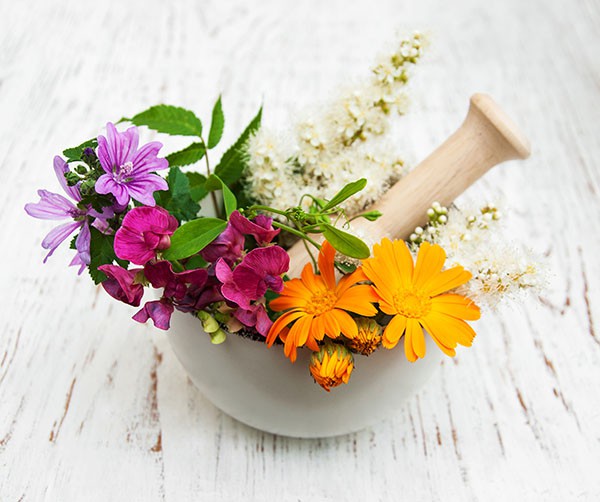
Heritage Herbalism
On my Hispanic side, I had not related to me by blood, but my father’s oldest brother’s wife who is my dearest best friend and a mother to me; her mother was called a “curandera.”
Of course, they had a garden always. She grew up in the hills where they lived in Arizona and she would collect all these wild herbs and each one had a purpose. If somebody had a kidney infection, she knew it was corn silk. They would boil that up as a tea. Somebody else had some other problem, they take the globe mallow plant, Malvaceae. I think that’s what it is.
Anyway, the point is that they would take the mallow plant and they would make that into a tea. I was always very impressed with that when I would go visit and they would talk about this. I would see this big basket of herbs. There’s a little, tiny child. He’s long gone now and all of that beautiful information that she had in her head that was passed on from family to family. That was-
Kami: I’m sure that inspires you.
Sheri: It does.
Plant knowledge is gathered over lifetimes
Kami: The thing is, is that for a lot of families that lineage is broken, but that’s what people do all over the world. They relate to plants. They use plants for food and medicine. Sometimes we lose that like, that was lost for about four generations in my family.
Sheri: You were talking about four generations. I didn’t realize it was four generations that it goes back to where we actually had passed down; much likely passed down how to garden, how to save seeds, how to fertilize and how to take care of pests. All of those things got lost. You say it’s about four generations ago for your family…..
Kami: Well, it just depends on the family. I know some families where their Grandmother’s still use plants. It really just depends on the family, the culture and what people needed to do when they got to this country, if they could hold on to their culture or not.
One of the things that I really encourage my students and anybody I talk to is that if you do still have someone alive in your family, that has plant-knowledge; that plant knowledge doesn’t just build in one lifetime. It accumulates over many generations.
If there is an elder in your family that has that information, you go and get it because even in just my lifetime, I didn’t have someone in my family really teaching me. I’ve had to study and go teach with people. I didn’t grow up with it in my household as a child.
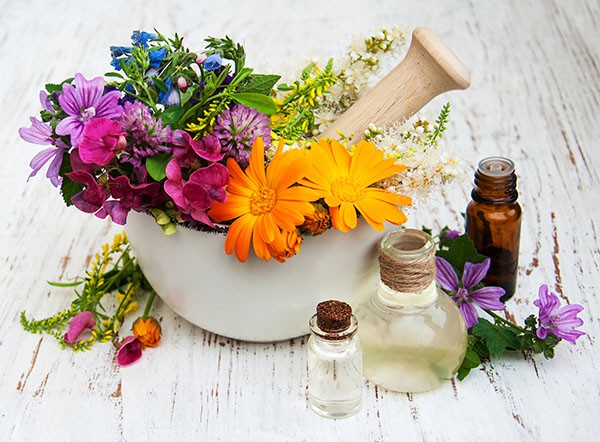
When you grow up with using herbal remedies for home ailments in your household is a completely different thing than learning about it later as an adult. If you can bring it into your home early on and have it embodied in just the way it is as a child like my son; he just knows how to take care of all his cuts and scrapes and scratches and his growing pains.
All the little headaches, all the common ailments; he knows how to take care of those things with plants. He feels confident. There’s never a question like, “Is this going to work?”
Again, if you have someone in your life that has that information, you just don’t want to let it die out. You want to get that knowledge that takes actually a long time to develop confidence with if you weren’t raised with it.
Go and get those remedies. Go and get those recipes. Write them down.
Spend some time cooking or making medicine with that person in your family because if they go then that’s gone. That’s generations of accumulated knowledge of how to live in harmony with the earth and how to take care of ourselves. We need the wisdom of our herbal heritage.
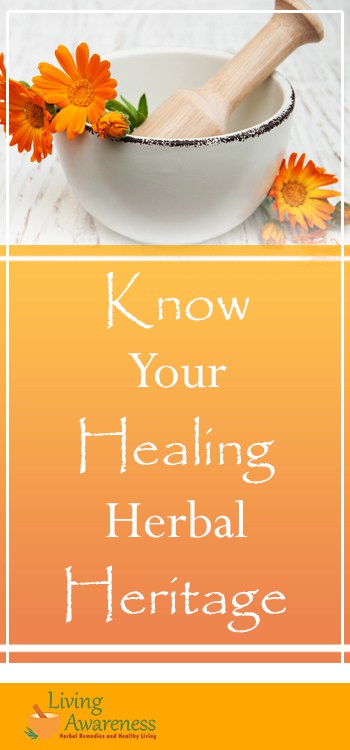

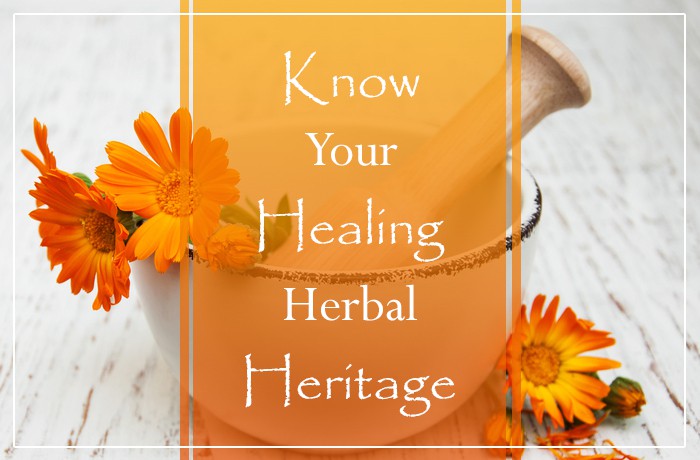
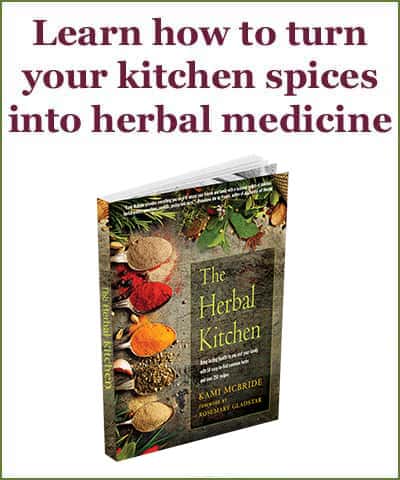
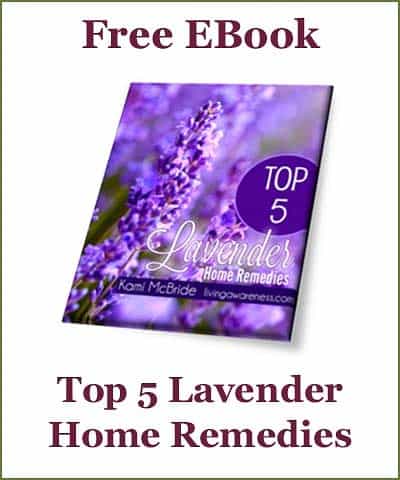
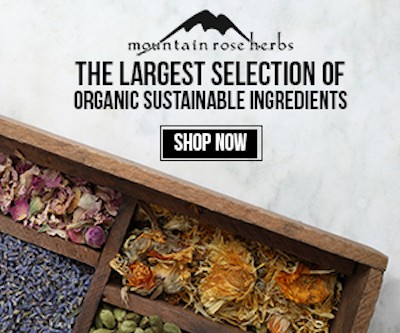
My father had gardens for a while & his love of horseradish was as close to herbalism as I remember. As I grew older I was drawn to all the fragrent plants, lavender,rosemary,geraniums,thyme ect. And then with health issues i began to read herbal info on my own. It’s difficult when those around you discount the information you try to convey. I’m so drawn to herbalism but continue to not be able to retain the vast information of it. I think I’ve bought way too many books & it can get confusing but there’s an underlying thread it seems. It’s… Read more »
Through healing the relationship I have with my mother, I also have learned that she knows quite a bit about plants, from growing up in the British countryside in the 50’s and 60’s. I am trying to talk to her about it as much as I can now! In the UK, Hawthorn leaves are called “bread and cheese” because when you were out and really hungry, you could eat the leaves and they would take away some of the hunger until you got home 🙂
Thank you for sharing your acknowledgements with us, Kami! You are indeed a great person for doing so.
wow! So brilliant you are. You done LOT of work and the result is so fantastic! Thank for sharing
I too, love this woman, for all the knowledge she possesses and is willing to pass it on. She not only teaches what she knows, but always makes it simple with all the tidbits she has learned. I just wish I had known this when I was younger, but it’s never to late to start. Just Do It ! Thank you Kamie!
HI Maria,
Thank you for your very kind words and you wisdom! Right, it is never to late to start and just Do it!!